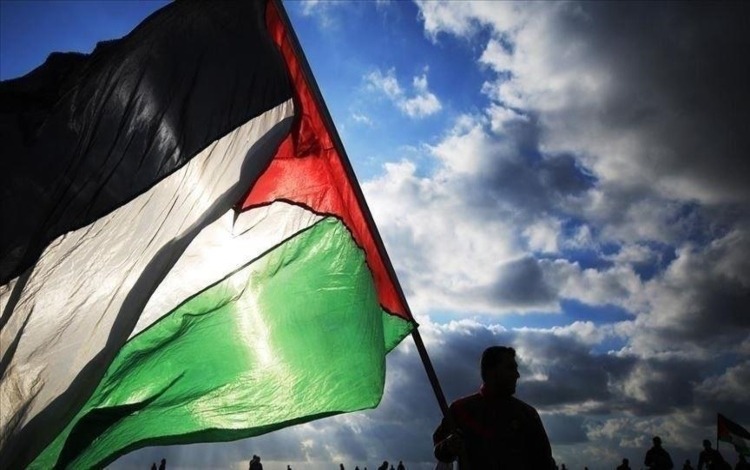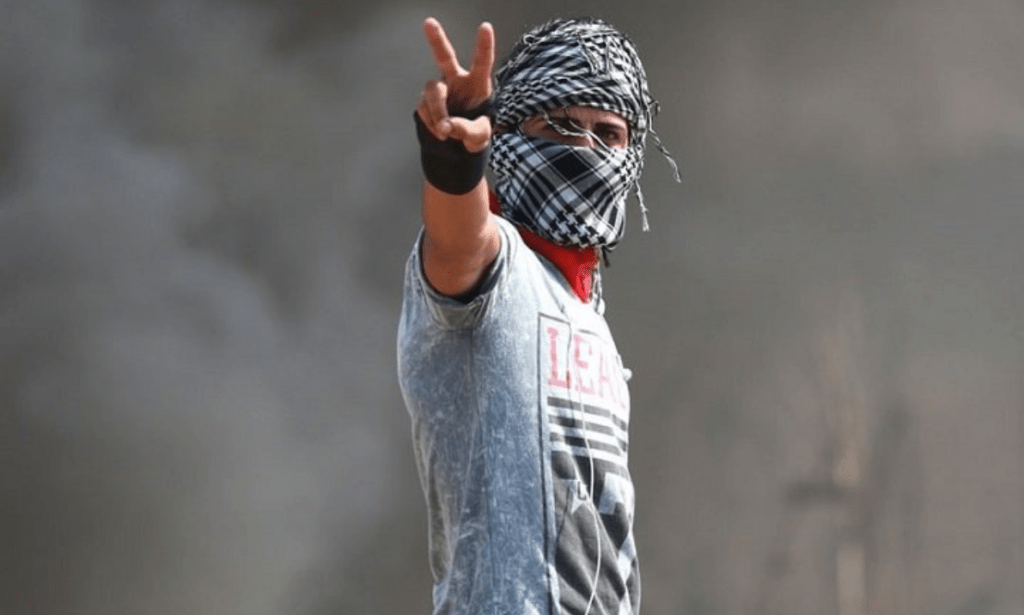When you’ve been oppressed for too long, stripped of your right to a dignified life, and tortured relentlessly, it’s almost inevitable to lose touch with what matters, and what doesn’t. It’s almost inevitable to unknowingly give up on a right that is no longer familiar to you. And, it’s almost inevitable to abandon hope or even project your frustration in a way that eventually serves no true purpose. After an insightful discussion with Palestinian Jordanian rapper and singer, El Far3i, this very placement of Palestinian frustration into inauthentic attitudes is so cleverly revealed.

In his song ‘Fil Atmeh,’ the loss and disintegration of Palestinian authenticity is in fact, a darkness as the title indicates. He starts off the song by saying “yali negmak dawy bas el leil 3aneed.” Here he refers to the shining Palestinian youth, those who urge for a pure approach to the fight for peace that is tainted by a stubborn night. He emphasizes on this stubborn night, a stifled anger, a rigid commitment to an ineffective approach for peace. This unbreakable attachment to resist in a way that is no longer coherent with reality, has taken away from their right to an honorable representation. And if anything, it has shifted the narrative from Palestinians being one together, to being divided by factors that will never truly free them from their oppression.
“Seme3tak bet2ool lel nawy yebee3.” Drained by a seemingly unending level of injustice, many Palestinians have reached the end of their patience, and the extremity of their limits. The ones that are willing to sell, are the ones that have rationalized what feels like an ineffective hope. Exhausted with their desperation, they are nearing a place where the only reasonable thing to do is to sell their land and live in a way that aligns with reality, despite how unjust it is. “Wel rady bel2enkesam” are those who have come to accept a two state-solution. But, if you take a look at the map, the West Bank and Gaza are so deeply embedded in Israeli territories, that a two state “solution” would undeniably not bring Palestinians any feeling of belonging or home. Both satirically and subtly, El Far3i reveals that, whether the land is sold or a two state solution is enforced, neither one of these options really bring Palestinians the justice they wholeheartedly deserve.

But, the youth comes in once again “la ana 3aleik mas2ool…wala khayef 3aleik tensany.” Driven by an unrelenting resilience, the lawful ones remain unaffected by those who derail Palestinian authenticity. Again, he says, if this dream is too far-fetched for you, then “forget it.” Their plans are not resting on their passiveness, as “sabrahom seedy el ayam.” Again and again, we see an untainted hope whose patience cannot be tested.
“Yali hamsak 3aly bewest el dajeej.” Their voice is rooted in true Palestinian identity, that it will not be denied or silenced by distracted ambitions. In the midst of the blasting noise, even a whisper will come through. Again and again, there is a relentless commitment to bringing Palestine to its truth, to its righteous solution. There is a commitment to give Palestine the fairness it has been yearning for, not just by their freedom from Israeli occupation, but more so, by earning this very freedom the dignified way.
The youth believes in its dignity. They have faith that those who have forgotten their righteous purpose will remember it once again. They insist that they’re not the only ones that can see the light, and sincerely know that they’re not the only ones who will ‘wake up from this darkness.’
In a vulnerable moment, we see El Far3i painfully reach out to his beaten people. “Raneit 3aleik ma kedert aseedak.” Here we can momentarily experience a softened pain, an agonized realization, not just by El Far3i, but for all the Palestinians whose prolonged oppression has unfairly separated them from each other. “How can I live when every single day my loved ones are dying?,” El Far3i asks himself. It is a pain that cannot be understood. And, despite the fact that this pain is so routinely, it still hurts each and every time, as though it has made itself known for the first time.
We cannot blame the Palestinians for going their separate ways. We cannot blame them for being resentful, and for turning this resentment into an attitude that is neither representative of reality, or of Palestinian values. But, in ‘Fil Atmeh,’ we see a persistence that cannot be broken, a hope that, despite its continuous denial to exist, it survives nonetheless. In the end of his song, El Far3i prays that God calmly takes them to a light that has no end. And we hope, that all Palestinians will come through, despite continually being given all the reasons not to. That they will use their truth to come together as one, rather than going on irrelevant tangents that will never serve them the justice they undeniably deserve. And finally, we hope that they will use all they have left to shine, to bring their truth into light, rather than enabling its darkness.




